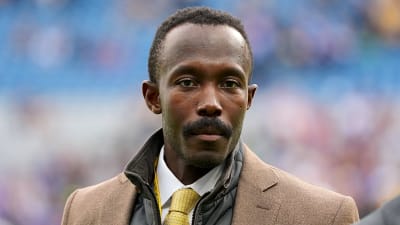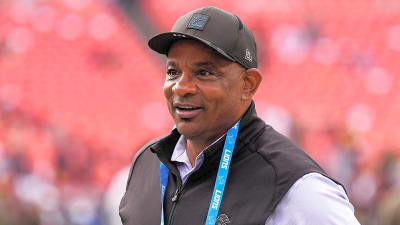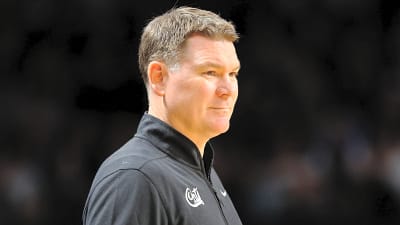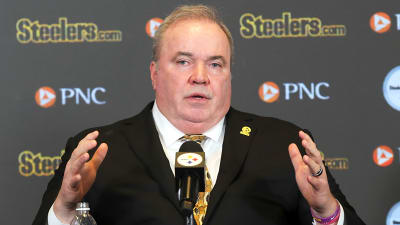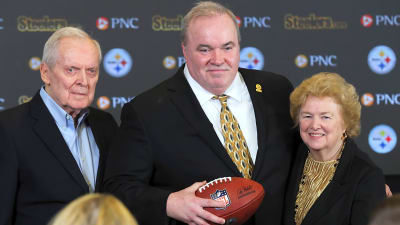
2020s vision: 10 ideas to improve NHL
The NHL is built on tradition. The people in charge, while open to some change, tend to take a methodical approach to cater to old-school traditionalists who do not like to see the game altered in any significant way.
Over the past 10-15 years, there have been a handful of changes to the way the game is played.
We saw the shootout introduced at the start of the 2005-06 season, the two-line pass was eliminated, and the league went to a 3-on-3 overtime. There also have been efforts to reduce head shots to make the game safer. All of these changes have had a positive impact on the sport to varying degrees.
But the league can do better.
Here are 10 ideas for the next decade to improve the on-ice product and fan-viewing experience:
Extend 3-on-3 overtime and eliminate the shootout
The shootout was a nice gimmick coming out of the 2004-05 lockout to eliminate the dreaded tie game. But it's overstayed its welcome, and now the shootout is a major letdown after the excitement of a 3-on-3 overtime period. So let's just give the fans — and the players — what they want and extend 3-on-3 overtime from five minutes to 10 minutes or just keep playing until somebody scores. Given how wide open 3-on-3 hockey is and how many scoring chances it provides, it probably won't take more than 10 minutes for someone to score a goal anyway.
No more icing on the penalty kill
Shorthanded teams have always been able to ice the puck without any consequence, and it's time for that to change. Force the penalty killing unit to make a play with the puck. The team already broke a rule to become shorthanded, so why should that give it an advantage that the team doesn't ordinarily have during the course of a game?
Players must serve entire penalty even if goal is scored
Currently the only players who serve the entire penalty are those who receive five-minute majors, allowing the opposing power play to score as many goals as it can. Let's extend that to minors and double-minors as well, which wouldn't be that unheard, as it used to be the standard in the NHL. It was changed when the great Montreal Canadiens dynasty of the 1950s was so good that the league felt it to be an unfair advantage. The parity and talent level across the league is far better now, so this wouldn't be an issue.
Eliminate the trapezoid rules
The NHL thought this would be a good way to limit puck-handling goalies and increase offense by not allowing them to touch the puck in the corners of the ice. But it really hasn't done anything dramatic to improve or change the game.
Eliminate offside
This would be a pretty significant change to the way the game is played, but it would dramatically open things up not only stylistically, but also in terms of eliminating stoppages, increasing the flow of the game and ending the need for those pesky offside reviews on potential goals. There was a brief time in the early days of the NHL (late 1920s) where offside was done away with to increase goal scoring — and it worked.
Hockey champions league
The NHL is always trying to extend its fingerprint across the globe by scheduling regular-season games throughout Europe and China. It seems likely that European expansion might be something that gets discussed; however, there doesn't seem to be much appetite for it. But let's take a page out of European soccer here and think about the possibility of a champions league. Have the Stanley Cup champions and the champions of the major European leagues (KHL, Sweden, Finland, etc.) play each other in a tournament. Would the NHL teams win? They would certainly be favorites, and it would be an interesting way to showcase the talent to the world. If you think that is too much hockey for the Stanley Cup winning team to play, that brings us to the next suggestion...
Shorten the regular season
Let's face it: 82 games is a lot ... and probably not necessary. There is little change in the standings after Jan. 1, and overcoming a deficit of even four or five points after Game 60 is rare. Shortening the season would help players stay healthy and not leave the playoff teams as drained. One of the unintended benefits of the 2012-13 lockout (resulting in a 48-game season) was that the playoffs that season were incredible, with fresher, healthier teams. It doesn't have to be as drastic as dropping to 48 games, but 65 or 70 might do it. The big problem the NHL would have: less games means less money.
Change the regular-season point system
The loser point (one point in the standings for losing in overtime or a shootout) isn't likely to go away, but let's give teams an even bigger incentive for winning in regulation — three points for a regulation win, two points for an overtime or shootout win and one point for losing in the shootout or overtime. What's the benefit? The potential for better finishes to games in the third period. Too often teams get content knowing they have a point in the bank and are happy to just run out the clock. There was only one go-ahead goal scored in the final minute of regulation in the first half of the season. Give teams a reason to push for that extra point.
Player safety changes
The NHL has already taken steps over the years to reduce hits to the head and the role of fighting, but the league can do more, especially as it deals with concussion lawsuits. There is still too much gray area when it comes to suspensions for head contact, so let's get rid of it: Any contact to the head, regardless of intent, becomes a suspension. Drop the gloves to fight? Automatic ejection.
Puck and goal line sensors
Two decades ago, the NHL had the glow puck. Soon the league is going to have player and puck tracking data that will tell us much more about what's happening on the ice. Let's use technology to definitively determine whether the entire puck crosses the goal line. Think of the tennis replay system for reviewing if a ball is out of bounds. There have been way too many plays this season where it "looks" like the puck might be over the line, only to have replay review unable to determine it. Let's take out the guesswork.
More must-reads:
- The best all-time trade for every NHL team
- The best NHL player at every age
- The 'Super Bowl host cities' quiz
Breaking News
Trending News
Customize Your Newsletter
 +
+
Get the latest news and rumors, customized to your favorite sports and teams. Emailed daily. Always free!
